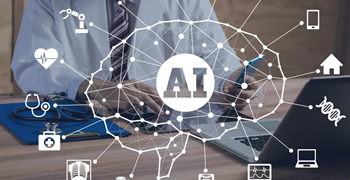
Artificial intelligence is a computer-based program that can perform the tasks that require human intelligence such as decision making, complex problem solving, highest accuracy result, object detection, and a high level of computation.
AI has broadened the horizon of the healthcare Industry. According to the report of PWC, it’s estimated that AI is going to contribute $15 trillion to the world economy by 2030 and the major impact will be in the field of healthcare.
Artificial Intelligence is revolutionizing the healthcare industry by providing a helping hand, optimizing the healthcare administrative process, patient care, analysis of healthcare data, linking the genetic codes, and many more things. AI is performing all these tasks with the highest accuracy but in less time and cheap cost.
AI plays a pivotal role in the Healthcare domain. AI has one of the highest impacts on the medical industry due to two major reasons. First is the high availability of medical data. Due to the availability of data, implementation of Artificial Intelligence is much easier. AI is based on the technology of machine learning which requires tons and tons of data. The second reason for the development of AI in the healthcare industry is the introduction of complex algorithms. Medical datasets have a vast number of features (i.e., blood pressure, heart rate, immune status, height, weight, surgery history, RBC count, etc.) as well as observations for an individual which makes the analysis complex. However, Deep learning and Neural networks process and analyze the high dimensional data as these two focus on solving complex problems.
One of the examples of AI in healthcare is the image processing of MRI scans. AI has improved the analysis of MRI scans by 50% with high-quality images and more accurate results. Moreover, with the help of deep learning and neural networks, AI is changing the image of medical diagnosis or image diagnosis. AI has made complex MRI analysis a simpler process. MRI scan has lots of information in it. For a doctor, it takes around 2 – 7 hours to analyze the data of an MRI scan in a conventional process. However, using AI the time has been reduced by 50-75% with high accuracy results. Researchers at MIT developed a neural network model called Voxel Morph that has been trained using a data set of 7000 MRI scans to analyze the MRI images at a faster pace and highest accuracy result. Additionally, AI has many use cases in the healthcare industry such as clinical decision reports, maximizing hospital efficiency, assisting in surgery, drug discovery, early diagnosis, and many more.
In the nutshell, AI is a boon to the healthcare industry by providing tremendous help.